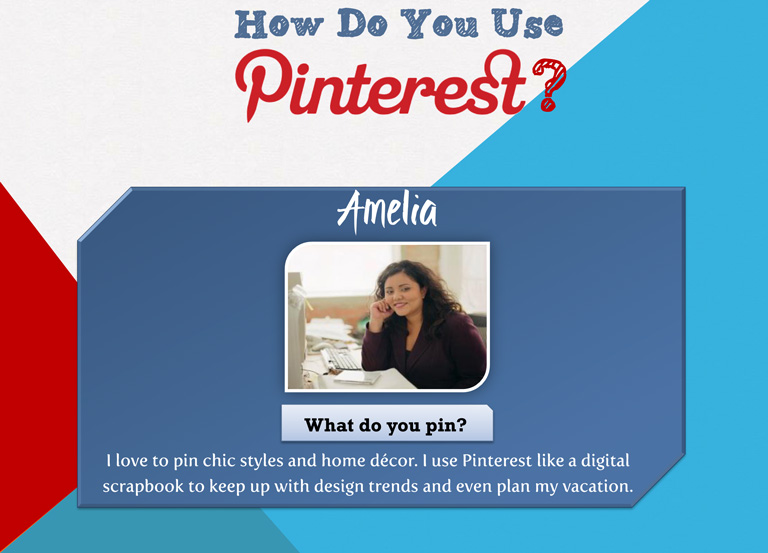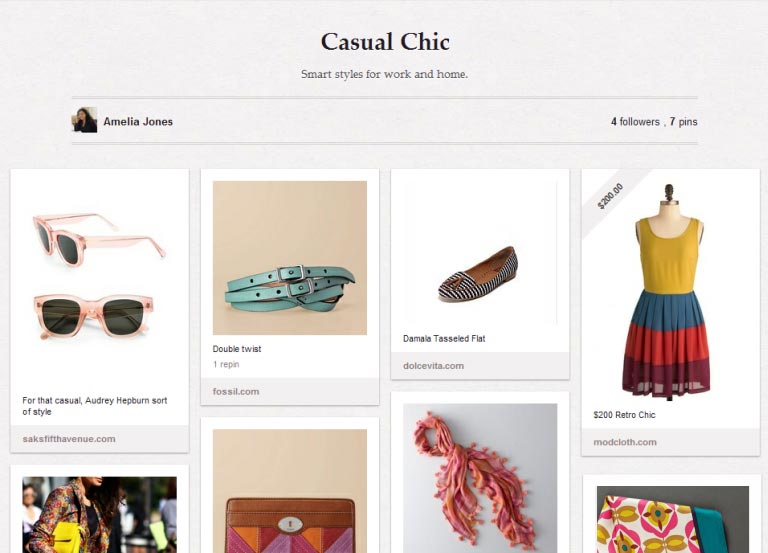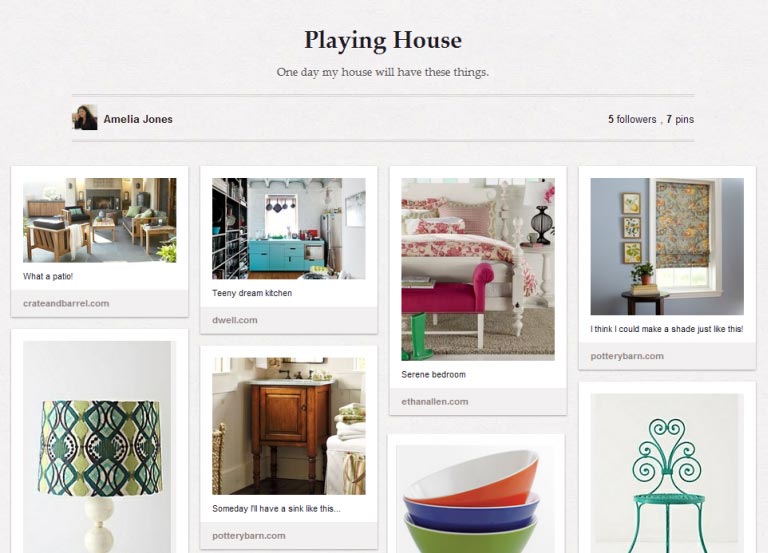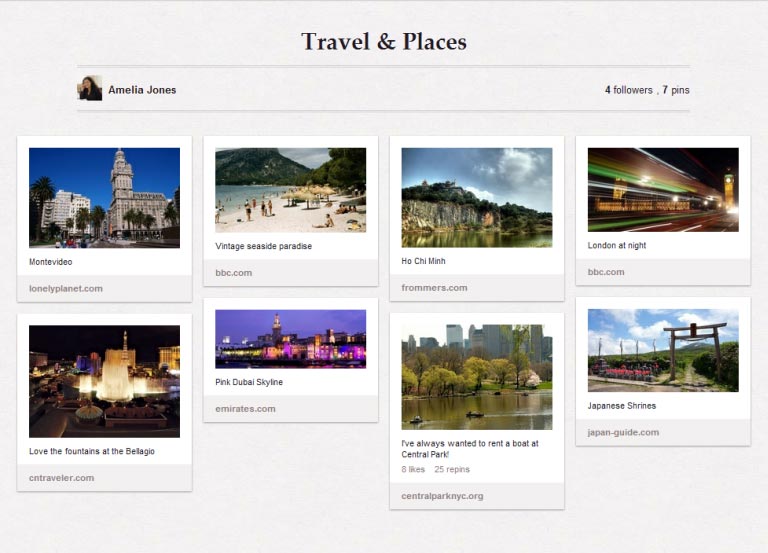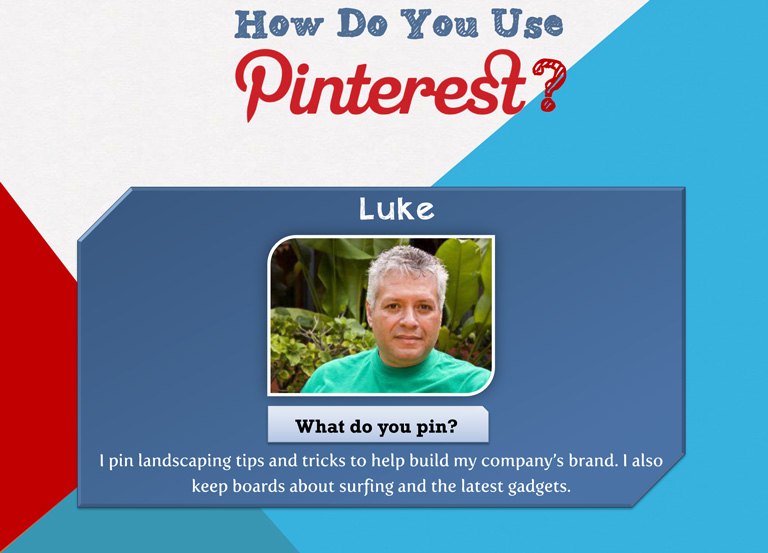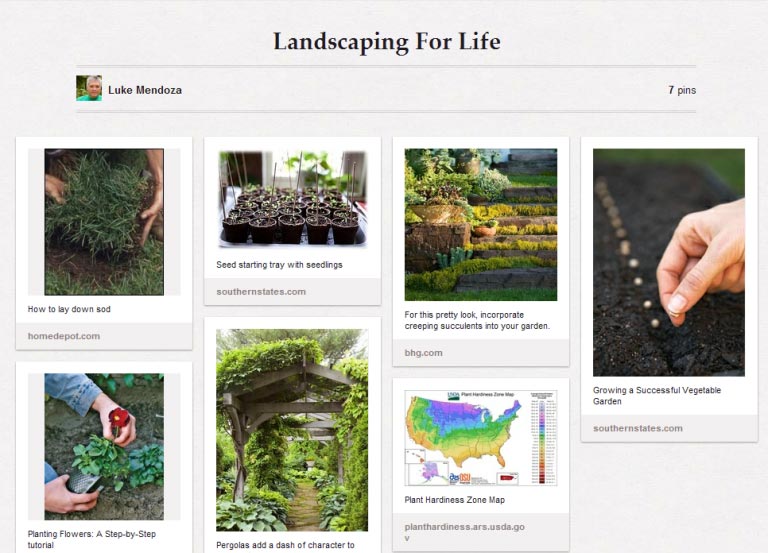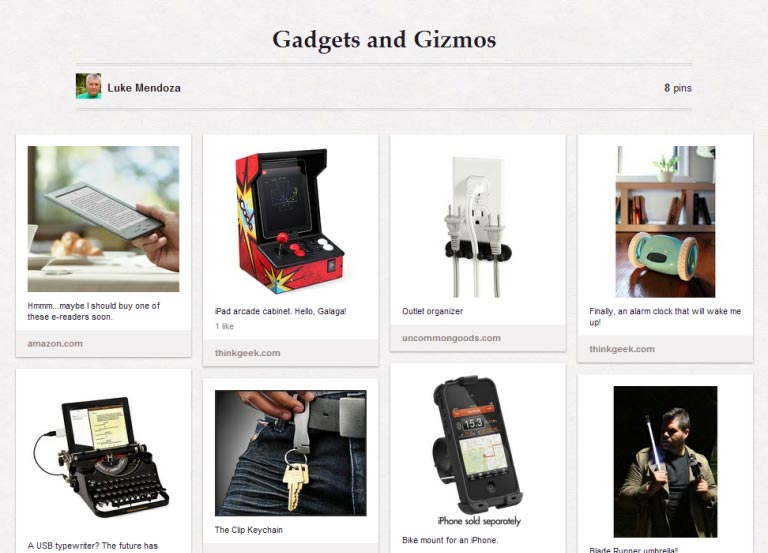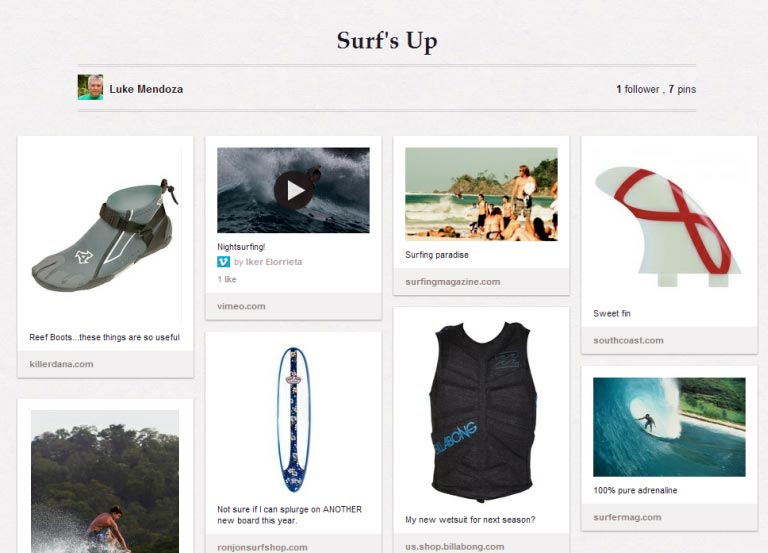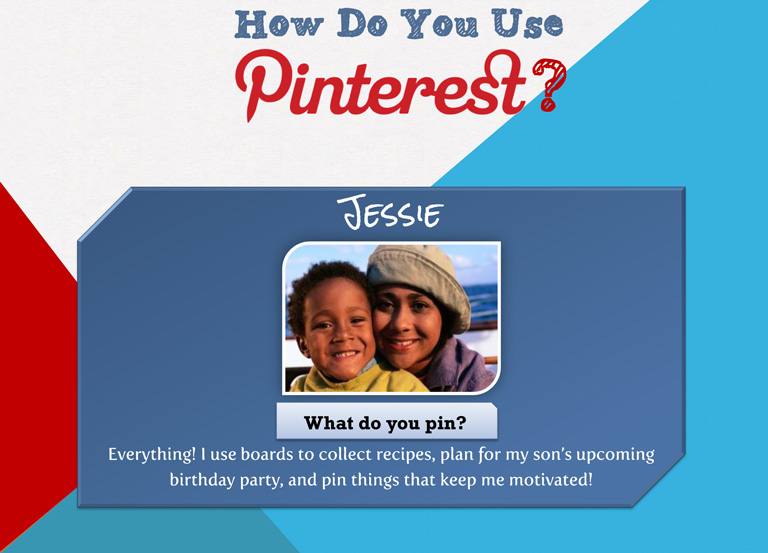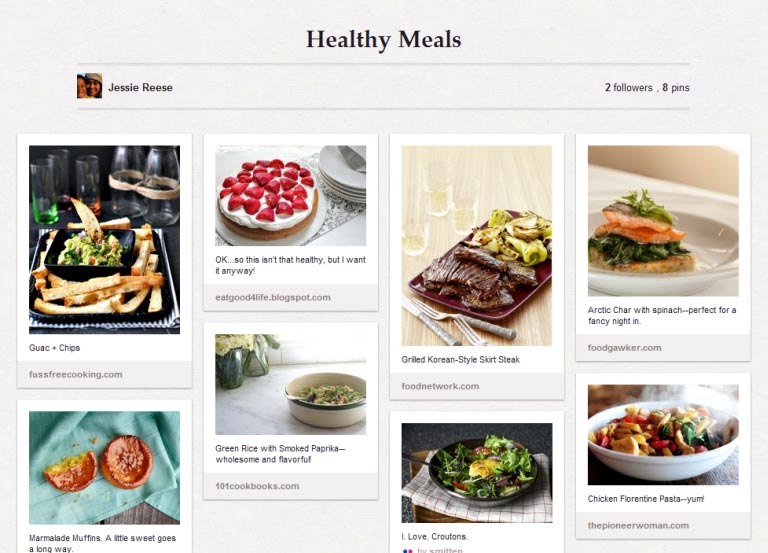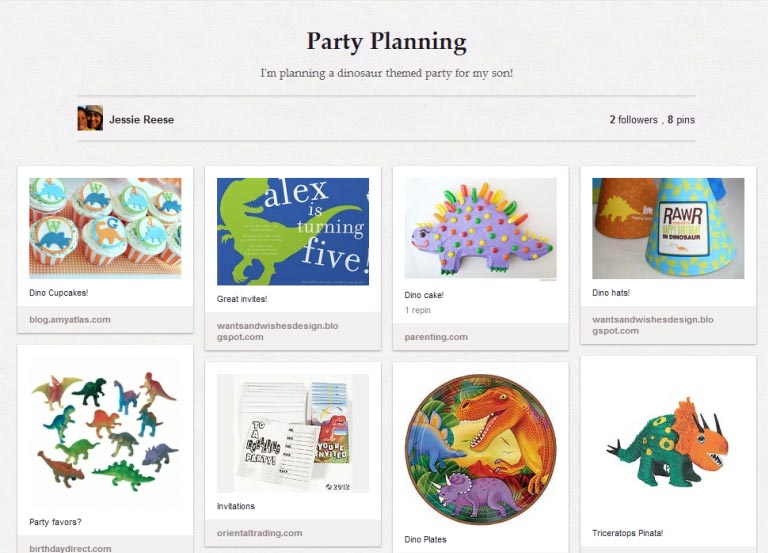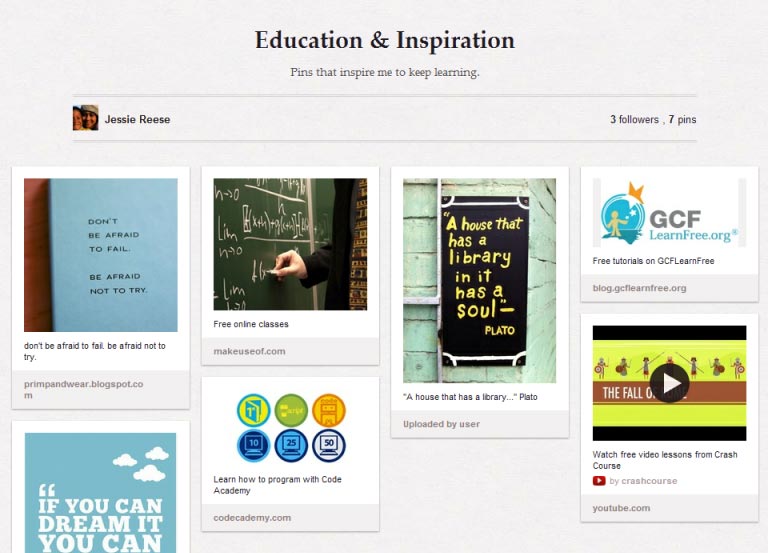All About Pinterest
What is Pinterest?
You may have heard people talking about Pinterest, one of the fastest-growing social networking websites today. While other social networks like Facebook and Twitter focus on personal sharing and status updates, Pinterest is all about collecting and sharing the different things you find on the Web.
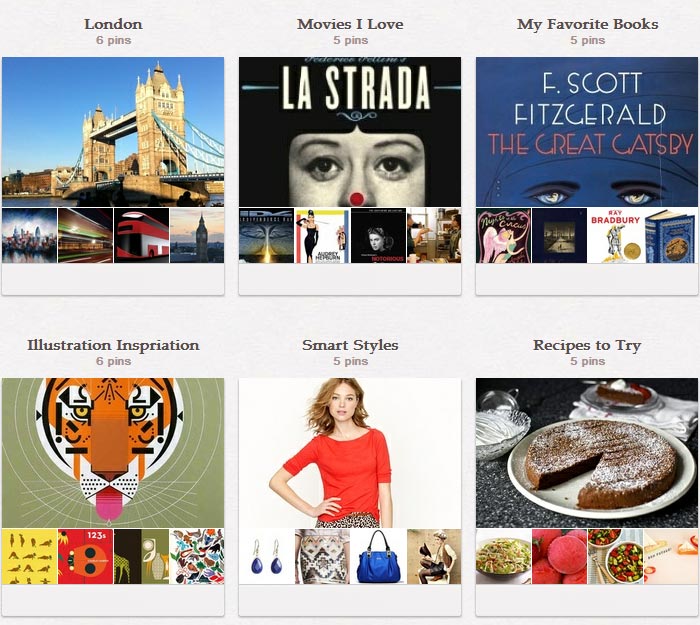 Collecting and sharing on Pinterest
Collecting and sharing on PinterestHow Pinterest works
Although we use the Internet to search for all kinds of information, it can be difficult to keep everything we find organized and accessible. Think of Pinterest as a sort of digital bulletin board or scrapbook for collecting the things you find online. For example, let's say you like using the Web to discover new recipes. While you can find an endless assortment of recipes online, saving them for future reference can sometimes prove difficult. You might not want to print out every recipe you find, and saving the links for lots of different recipes as bookmarks can start to feel a little overwhelming.
Pinterest makes it easy to save and organize whatever you discover online. In our example, whenever you find a recipe you like you could save that recipe as a pin. The pin is then displayed as a picture on a pinboard, creating a collection of different images as you add more pins. Clicking a pin will link you back to the picture's original website, turning your pinboard into a series of visual bookmarks.
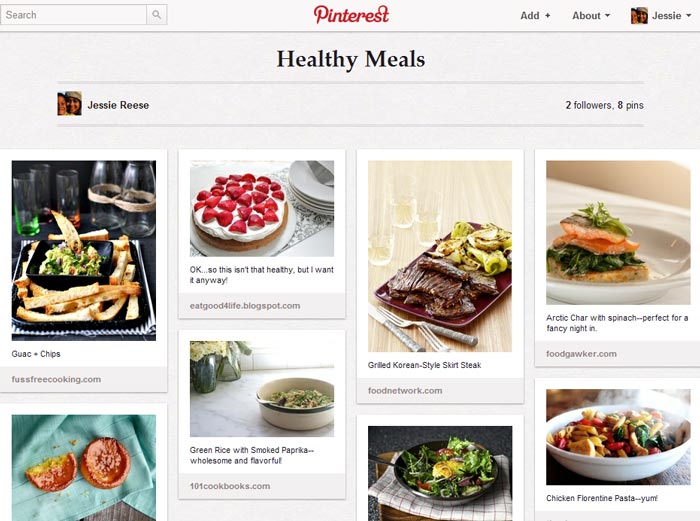 A pinboard of recipes on Pinterest
A pinboard of recipes on PinterestBut Pinterest isn't just about creating your own pinboards. It also allows you to follow the pins saved by your friends and other users, or pinners as they're called on Pinterest. Whether you're looking to find what's new or discover the latest trends, following pins is an easy way to explore what's happening on Pinterest.
Whenever you're browsing Pinterest, you can easily save, or repin, pins that you discover to your own pinboards. Repinning actually accounts for more than 80% of the pins that appear on Pinterest. Some pins are even repinned thousands of times. Simply put, people just love sharing and repinning on Pinterest.
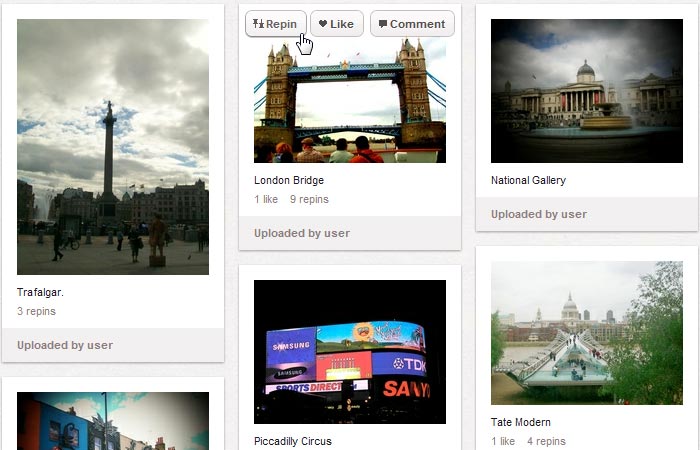 Repinning a pin
Repinning a pinPinterest's popularity
Since its introduction in 2010, Pinterest has quickly become the one of the most popular social networking sites in the world. While some have been surprised to see a simple website like Pinterest become so popular, its simplicity is linked with its success. It's easy to start using Pinterest and make pinboards of your own.
Pinterest has also seen some of its largest growth from retailers and businesses. Because it is all about sharing different things you find online, companies are excited to see Pinterest users pinning their products. Retailers have also been able to use Pinterest to develop a brand identity by pinning items that are related to their business. For example, a hobby store might create a pinboard of interesting craft projects.
Pinterest by the numbers
- Women account for about 65% of Pinterest's users worldwide, but the percentage of male users is rising.
- Pinterest sees more than 11 million unique visitors every month, according to ComScore.
- People in the Unites States are 70% more likely to buy an item they find through Pinterest than if they found it on a company's website, according to Shopify.
Resources and links:
- What is Pinterest?
- Everything You Need to Know About Pinterest (March 2012)
- How Pinterest Drives Ecommerce Sales (May 2012)
Who uses Pinterest?
Pinterest appeals to a variety of people, which is one of the main reasons for its growing popularity. Whether you're looking to stay more organized, create a board of interesting things, or draw attention to your business, there's almost no limit to what you can do with Pinterest.
Review the slideshow below to learn about three different types of Pinterest users and what they pin.
Pinterest privacy
It's important to realize that with the exception of your secret pinboards, anything you pin on Pinterest is completely public. While Pinterest is certainly less revealing than more personal sites like Facebook, it doesn't give you very much control over your privacy settings. Because your pins are public, some people could make certain assumptions about you based on the types of things you pin. Always use your best judgment when pinning things to Pinterest. Never pin something obscene or overtly offensive, which can result in the termination of your Pinterest account.
Copyright, fair use, and pin etiquette
Pinterest has recently faced some criticism about the way the site works, specifically in relation to copyright law. The issue lies in the fact that some pins are not accurately linked to their original sources. You can prevent this by making sure your pins always link to their source, which gives credit to the original creator of the content. If possible, make sure you have permission to pin someone's work, especially when pinning a photograph. You should also take extra care when repinning to ensure the pin is properly linked to its original source.
Some websites even block Pinterest, making it impossible to pin things from that page. You should always respect content holders' right to stop you from pinning their work.
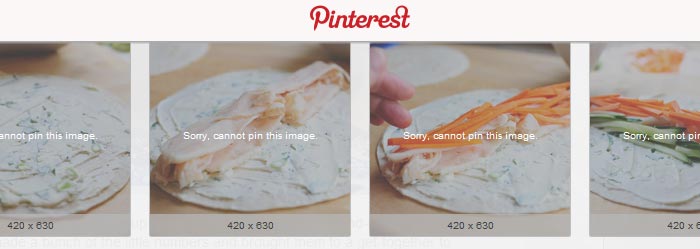 A website that does not allowing pinning
A website that does not allowing pinning



